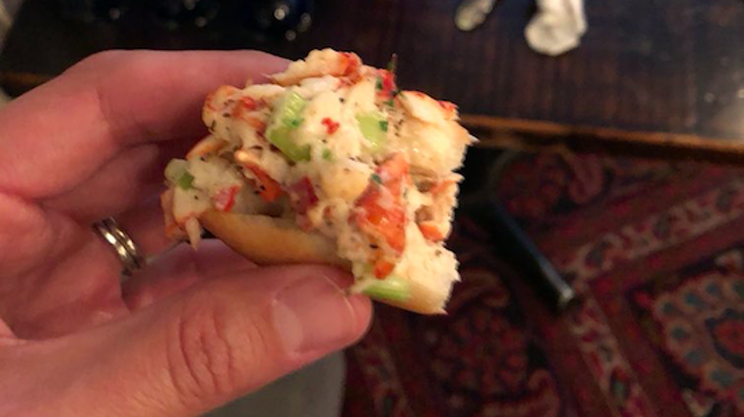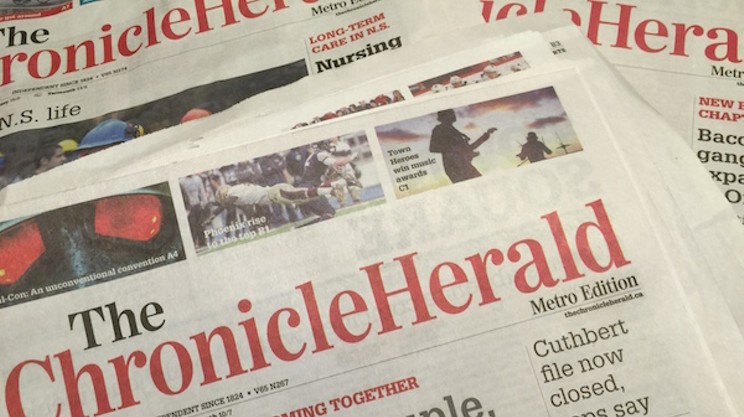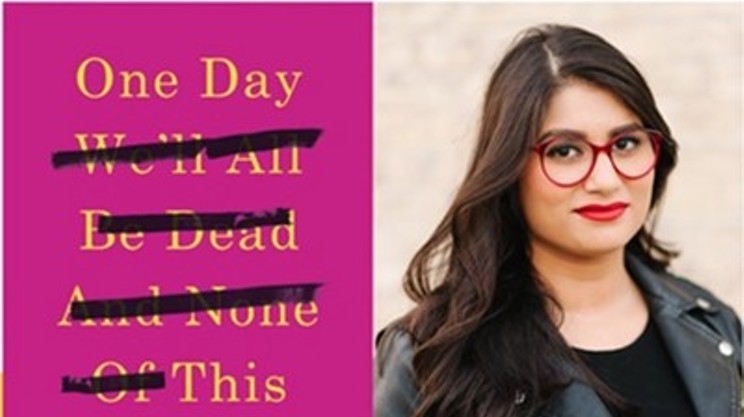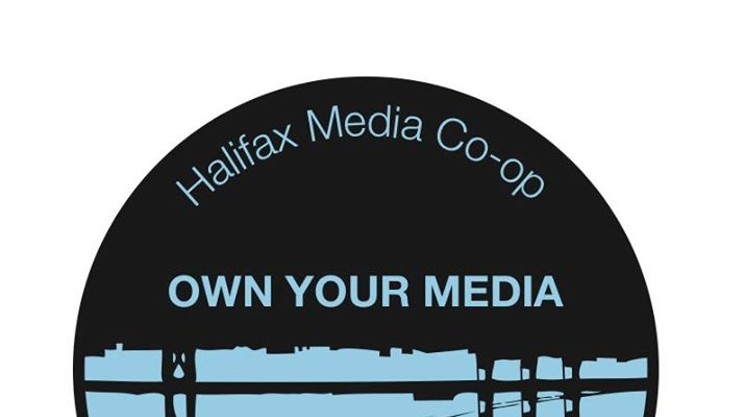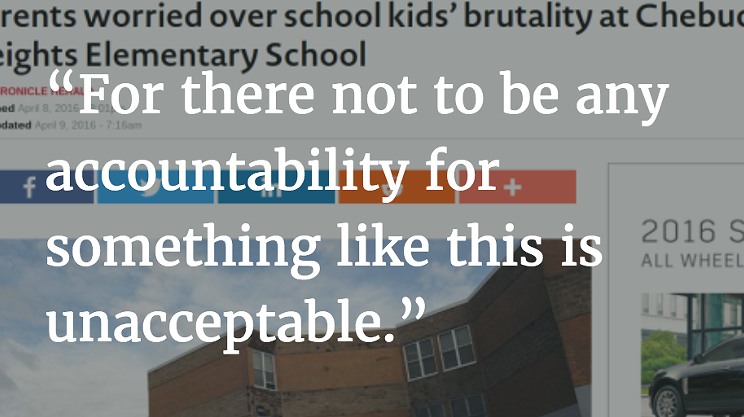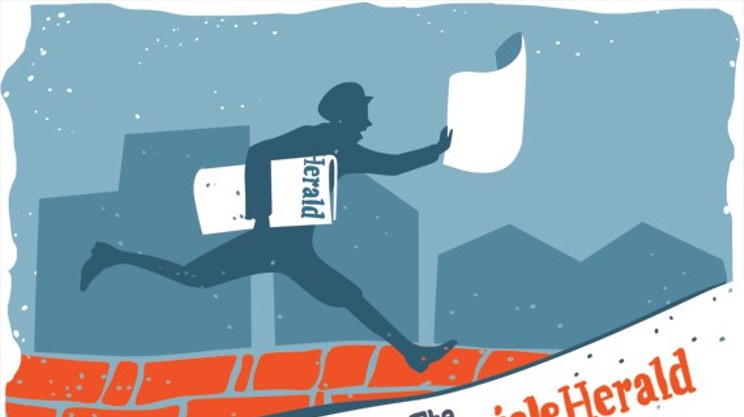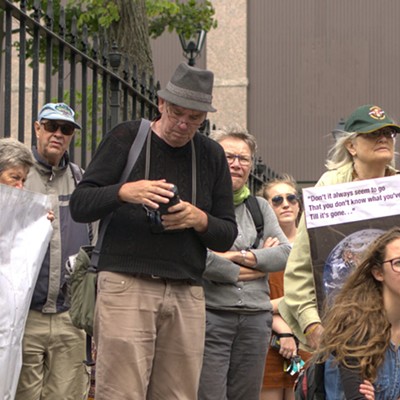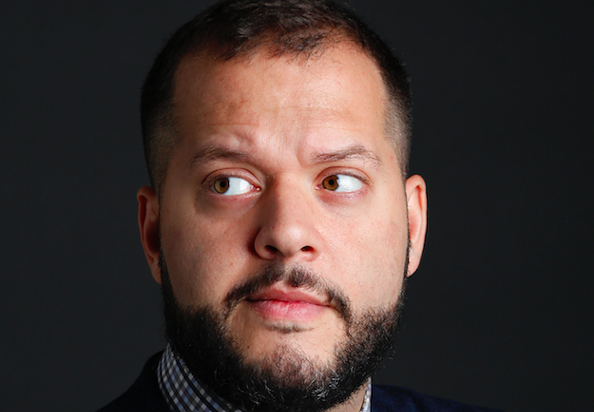
Jesse Brown, founder and host of CANADALAND, is an award-winning journalist and outspoken media critic. Parker Donham,
In advance of Brown visiting Halifax this weekend for a live podcast recording with University of King’s College journalism professor Terra Tailleur and Halifax Examiner publisher (née Coast news editor) Tim Bousquet, The Coast asked Donham to interview Brown about the future of Atlantic Canadian journalism. Questions and answers have been edited for style and clarity.
Donham: I’ve been a subscriber since you started the Patreon campaign, but you’ve never asked me why I decided to be awesome. So here’s your chance.
Brown: Parker, why did you decide to be awesome?
Because I love your show—except when I hate it, which is about half the time. And I take equal pleasure in loving it and hating it.
That’s what you're paying for. I know. It’s a variety.
So, can we get rid of this awful question? Even Scaachi Koul is embarrassed for you.
It's occurred to me, from time to time, to be a bit more plain about it. You know, “Why did you decide to support this program?” But I feel like radio works with these weird rituals and when you commit to one, you're doomed from the start. That’s what I went with the first time I ever said it and now that's what it'll be for the lifespan of the program. Sorry.
I’m almost twice your age, and my love affair with journalism started with newspapers. I’m just curious whether that's also true of you. Did you grow up with newspapers as a huge part of your childhood?
No, I mean my parents subscribed to all the papers, but I was not a news junkie. I was not terribly obsessed with newspapers as a kid. I remember we’d get the paper on the weekend and I’d flip to the comics section. I’d read the TV listings. Those are the days when the President’s Choice Insider’s Report was a big deal here in Ontario. I liked to read about food, entertainment section—news, not in the slightest as a kid, no.
When I look back at my childhood, I think of Sunday mornings with—I grew up in the States—with the New York Times and the Boston Globe, which were both enormous newspapers with dozens of sections, spread out on the living room floor, and all six members of the family reading parts and talking.
It’s more enlightened than my upbringing, though we did get the Times on the weekend in high school. I'd go straight for the magazine. I was always more of a magazine reader. I liked the long-form stuff, and I liked the front-of-the-book stuff. I liked the Ethicist and the little interviews. I liked that stuff.
I ask the question because when I hear you talking about the calamity that is overtaking the newspaper business, there’s often some undisguised contempt in your voice. You talk about “the failing newspaper industry.” You almost talk about it the way Donald Trump talks about the New York Times. Do you not make any allowances for the horrible systemic problem that they’re caught up in?
What do you mean by “make any allowances?” Do I think it’s real?
Well, I don’t think the Canadian or North American newspaper business is struggling because the people doing it are dumb, and yet that’s kind of the way it sounds when I listen to you and Bousquet talk about it.
I think that most of the people running the papers are pretty dumb—they're not dumb; they're facing the innovator’s dilemma. People forget newspapers made a lot of money. They didn't just make money; they made a lot of money, and they got used to double-digit profits every year. You had to go through them if you wanted to reach any kind of local population. You really had not many advertising options, and the papers, they could just depend on really, really handsome profits for decades and decades and decades. I won't tell you the story that everybody knows: that went away a lot quicker than everybody thought. But it's still where they get most of their money. It's the classic thing where the thing that we're making most of our money from, everybody knows is not going to be around much longer and it's getting much smaller every year. But it's still way bigger than any new way of making money.
So what do you do? Because in order to really do the new thing well, you have to stop doing the old thing. And the old thing is where everybody's getting their money. So the only thing that can be done is a very difficult thing for any company to do, and especially slow companies and companies that are bound up in manufacturing and door-to-door distribution. They're really wedded to an industrial-era of commerce. So that's their whole way of doing business, and the jobs there—it's heavily unionized—and it just so happens that a lot of the people running these organizations are really old dudes. They're really old, and they also have a lot of pomp, with some justification. It's a noble thing to be a newspaper publisher, and they have traditions and legacies they're very proud of. So what it all adds up to are institutions that are unwilling to cut off that slowly withering umbilical cord, to make a rather disgusting analogy. They can't seem, most of them, to do what's necessary—to sever that limb. And their new iteration might be smaller; it might bear little resemblance to what occurred in the past. But if the thing that we're trying to preserve is the institution of journalism for its civic function in a democracy, keep jobs—and specifically we're talking about reporters’ jobs, because a lot of other people, they've got to go—there’s only one way to do it, and really it’s to get out of print. So, yeah, I harp on them a lot, because it’s incredible to me how that just doesn’t get through their thick skulls, and I’m increasingly convinced that...
There you go, “thick skulls.”
Yeah...
You make about $200,000 from Patreon, and I don’t know if you want to share how much you make from peddling men’s fashions, but is your model scalable? Can you imagine an online publication that would ever make enough money to have foreign bureaus or have the kind of investments in reporting that were routine for big city newspapers 40 years ago?
Can I imagine that? Sure, I mean, I could probably even point to some examples of where it's being tried out. But I can imagine that. I can imagine anything.
My hypothetical analysis, I am not here peddling the golden key solution, like I know which magic beans are going to sprout. I can probably look into a crystal ball and tell you with some certainty that 10 years from now—even five years from now, 20 years from now—there will be journalists. There will be people whose job it is to report what's happening in the world. My suspicion is they will be covering many of the things they've always covered, and some things will be covered a lot better. How that's going to happen...
I have one model. It's a weird little, like a Galapagos Island thing. There are not many other people who are doing this weird hybrid of crowdfunding and advertising, with podcasts plus news. There’re some similar little organizations, but I certainly don't claim this is the model that everybody should repeat and scale. What I think has got to happen and is happening, maybe not so much in Canada, is we have to try a million things. The upside of all of this bloodshed, all of these job losses, is that there's never been a greater market out there of journalistic talent. There are a lot of motivated people who are either leaving the industry, joining government and crisis communication or whatever, or they're saying, “OK, I believe I have something of value. I believe my skills matter and the job I do is an important one.” It's sort of a thing that people have been trying to figure out in their respective fields from the beginning: “How do I connect a valuable service or product with people who see value in it?”
We have this wonderful system of money, and the money system is getting more fluid and there's less friction in it than ever before. So, I'm taking advantage of that in my way. It's changing a bit, but we're seeing a lot of experimentation elsewhere in the world. Not so much in Canada. I think that has a lot to do with these thick-skulled geriatrics that are intent on running these old papers into the ground, because there’s a direct relationship between their continued existence—especially when they're not really trying to change or adapt—and the lack of experimentation, the lack of an advertising market and a readership market. This is just my opinion here, but I think that the only future for news as a business is directly selling it to the newsreader, to the audience.
I guess my analysis of the newspaper industry would be similar to yours, but a little more complex. In my lifetime, I've been through three models of newspapering. For most of the 20th century, newspapers were owned by eccentric millionaires who were swimming in cash. Then sometime in the ‘70s, Roy Thompson and Conrad Black came along and figured out that if you use ruthless cost controls, you wouldn't simply have a swimming pool of money but a never-ending waterfall. And then all of a sudden it all just disappeared. It seems to me it's harder transitioning from an environment where you are trading print advertising dollars for online advertising thousandths-of-a-penny than you’re letting on. While a handful of very large newspapers like the New York Times and the Washington Post and the Guardian may be able to pull it off, it’s really, really hard for medium-sized regional newspapers like say the Chronicle Herald to do it.“...we need the Chronicle Herald to die”
tweet this
I think you make a great point, which is that the crisis that hit because of the technology, because of the internet, came at the exact worst time given the way, the really cynical way, in which newspapers have been run. Which is to say that we saw before the internet a steady degradation of the journalistic product because the newspaper barons realized that essentially what they were doing was delivering advertising. All the flyers that came in, they had this wonderful distribution network where they were just delivering advertising to people's doors. And you know, people's literacy was going down. It was not the heydey of newspapers anymore, so you could really skimp on the product. You could run a lot of wire copy, run a lot of fluff, and they were experimenting with advertorial and all kinds of other insidious things before the internet. So when the internet hit, all of a sudden the special value add that newspapers provided, the only thing that newspapers have that nobody else can steal away from them is the journalism, and we had less of it than ever before this crisis hit. I agree with you completely about that.
Where I don't agree with you, necessarily, is I think you are attributing whatever ability the New York Times and the Guardian have had to thrive or to make the transition, you are attributing to their scale, their big size. It's got something to do with it. But there are other big papers that aren't doing so well. I think it has to do with the fact that they lead with their journalism. The Times is in a great position—because they're a national paper and they're the Times—to say “We are the brand...When the advertising market, the bottom falls out of it and the only thing left is to sell truth to people, we're in a very good position to sell that product.” The Chronicle Herald? Not so much, and they are circling the drain because they've degraded the journalistic product to a point below which I think anyone imagined was possible. Maybe they're still making little profits because they fundamentally exist to deliver those flyers. I don't know...
Mind you, the Herald has always been—well, almost always—been a truly dreadful newspaper. Once cited as “the worst newspaper in Canada” by a Royal Commission. It had a brief renaissance in the 1980s and ‘90s when it had competition from the Halifax Daily News and from the Globe and Mail. It’s always been pretty bad, and I think an unexamined part of why it has gone on so long is: I have a hunch most Herald readers don’t realize there’s a strike. It gets delivered every morning to the same place they always got it. They open it up, there’s the obits, the horoscope, the crossword, the funnies. And if they open up the news pages, there’s stuff that looks sort of like news. It's kind of depressing to think that. I suspect their circulation hasn’t been as much affected by the strike as people who love journalism wish it had been.
I think you're probably right. It still looks and smells like a newspaper, and it was always a piece of garbage. It's harsh to say that. I know people have been striking for a year. They cared about the product.
No one likes to kick people when they’re down.
I'm not kicking. There's always great journalists at shitty newspapers. You're kind of making my point, which is essentially we need the Chronicle Herald to die, because if you have any chance in hell of selling some percentage of the population on the idea that it's in their best interest to pay for journalism, local journalism, then you can make that pitch a lot stronger the day the Chronicle Herald dies.
They’re taking up space.
You need to be able to say to people, “You are unrepresented, my friend. There is nobody keeping an eye on your elected officials. There is no one keeping an eye out to make sure they don't give themselves raises and give their cousins no-bid contracts. There's no one. I don't care if you read the paper or not. You still need me there reporting what happens, whether or not you read my stuff, because if I'm there, they're going to watch their asses. I'm a check against corruption. You need me.”
I think that that is a pretty strong pitch, in the absence of a daily newspaper that is terrible. I think you can probably get one out of 10 people. That's what we do. For our audience, one out of 10 pays for what they get for free. We give it away to everybody, but one out of 10 chooses to pay for it. We're doing something that nobody else is doing, which is why we can sell it. It's just a supply and demand thing.
You’re here to speak about “Is Atlantic journalism fucked?” You’re like a lot of national journalists. You ooze Toronto from every pore. What the fuck do you know about Atlantic journalism?“...the stories that come out of the regions, the cities, the neglected parts of this country are insane.”
tweet this
Not the first thing. I’m parachuting in. I’ll probably read some stuff on Wikipedia on the way. I have no particular expertise to offer. I’m going to come and ask questions, and say annoying things. I’m going to speak to people who do know about it, and we'll see what happens.
At least you know who the Irvings are now.
To my great shame, I had no idea before Jacques Poitras told me. But you know what, I did that episode. Every now and then I get out of my Toronto bubble and do an episode about some other part of the country and I think, “Well this will please some people in the regions and it’ll piss off my core audience and we won't get many downloads, but it’s still a good thing to do now and then.” Do you know that is one of the most downloaded episodes of the show ever?
It was a good show. To be serious about this, one of CANADALAND’s stated goals for the coming year is to get better at covering the whole country. How do you plan to do that?
I think we’ve already done a great job. We covered the Irving newspapers. We uncovered a scandal that lead into a government inquiry in New Brunswick. The way that I did that was I paid somebody who knew a lot more about it than I did to look into those things. We've done that on a number of stories throughout the country, and I think punch way above our weight when it comes to representing. We’re a media-reporting, media-criticism company, but we’re also kind of looking at things that no one else wants to talk about. I have trouble turning away a freelancer who’s got a story for me from some other part of the country that I’ve never read before that sounds like a great story. I don't really care so much if it’s about the local newspaper. We’re just looking to fill in gaps. We're looking to do things that other people aren’t doing.
The best way for us, I’ve found, to cover the rest of the country is let it be known far and wide that it’s a deficiency of ours; it’s a blind spot. We'll give preferential treatment to reporters from different parts of the country and let them know that their pitches are very welcome here and that we can offer them a national platform that often leads to our stories getting picked up by mainstream news. It’s a really great way for mainstream reporters all around the country to break big stories. That seems to work, and we’re now able to pay them what is sadly a competitive rate. Our base rate is $200 for a post on our site, and we sometimes negotiate higher than that depending on the amount of work that’s needed. I think we're doing better than we ever have been, but it’s still something that we need to do a lot better.
I moved to Canada in my mid-20s and I learned about the country by listening to Peter Gzowski on CBC. I often wonder how someone in their mid-20s. who moved to Canada today would learn about the country. So I applaud your making that a goal.
Thank you. Listen, I just want to say, there’s no virtue. I’m not doing that to be a nice guy. It’s because the stories that come out of the regions, the cities, the neglected parts of this country are insane. The stories are bonkers. This country’s crazy. The kind of things that are festering in the weird politics of some of these cities is just good material that everybody finds interesting, so that’s why we're interested.
Correction: This article originally wrote Terra Tailleur's first name as “Tara.” It's been updated and The Coast regrets the error.

